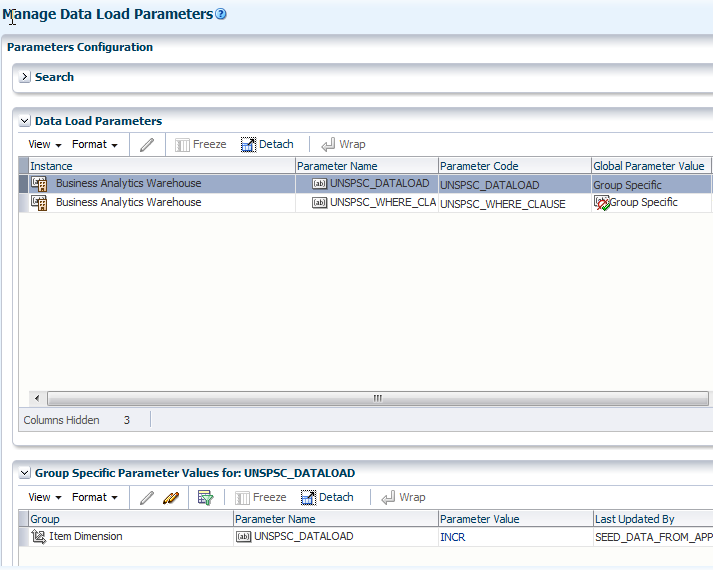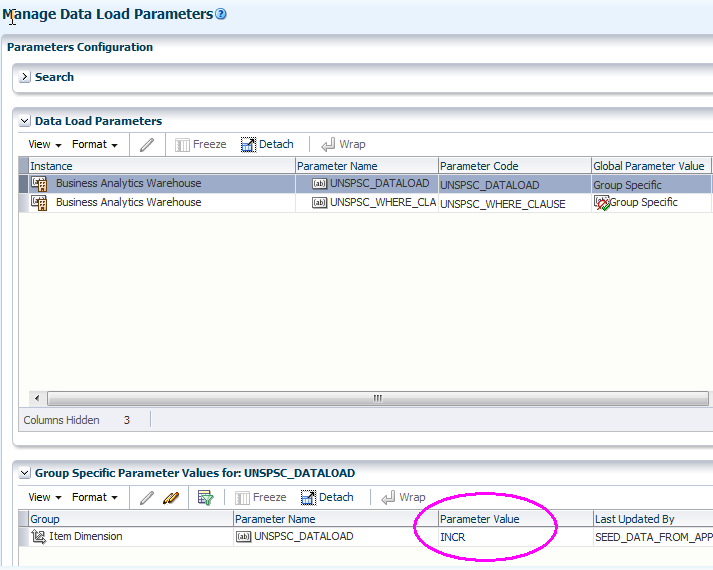Assigning UNSPSC Codes to Products
You can assign United Nations Standard Products and Services Code (UNSPSC) codes to products and commodities in Oracle Business Analytics Warehouse. The UNSPSC provides an open, global multi-sector standard for efficient, accurate classification of products and services.
This figure shows an extract from a file containing UNSPSC data, where the UNSPSC Code for Cats is 10101501 and the UNSPSC Code for Dogs is 10101502.
About Configuring the UNSPSC Parameters
In Oracle BI Applications Configuration Manager, you configure how UNSPSC data is loaded using two Data Load Parameters named UNSPSC_DATALOAD and UNSPSC_WHERE_CLAUSE, (see example screenshot below).


